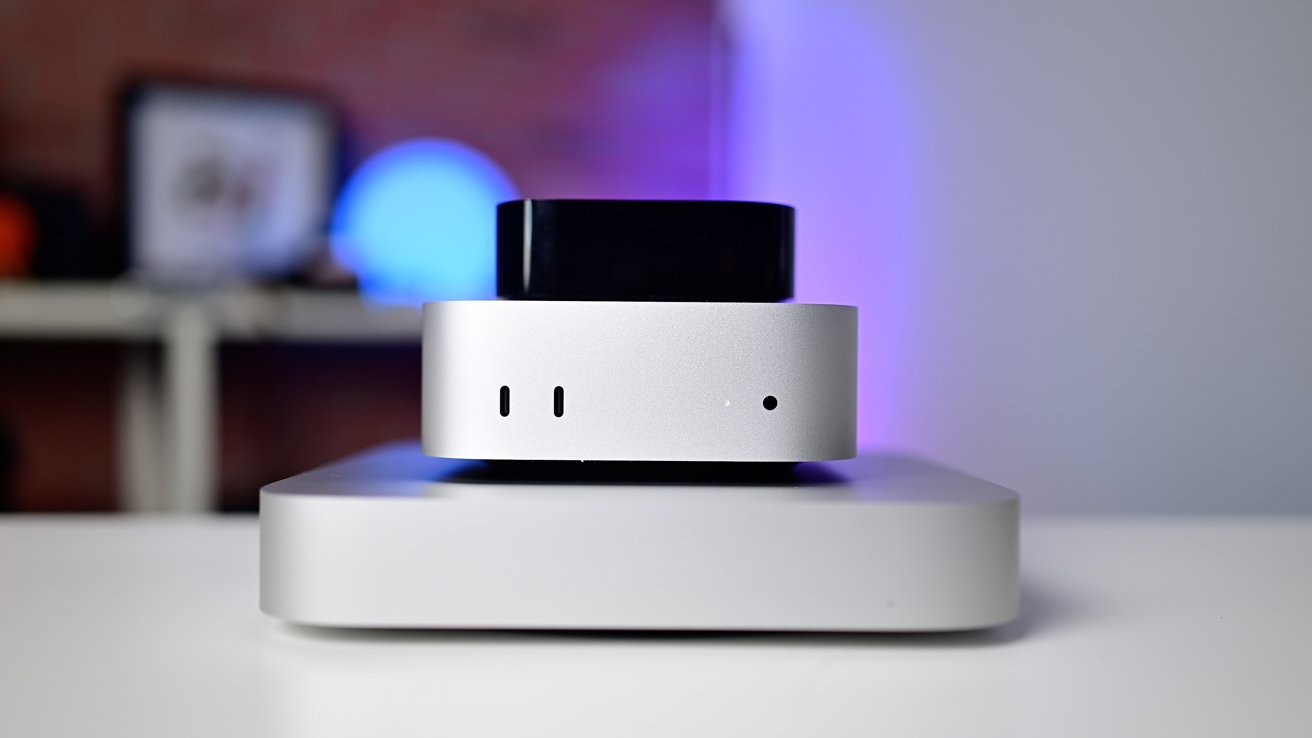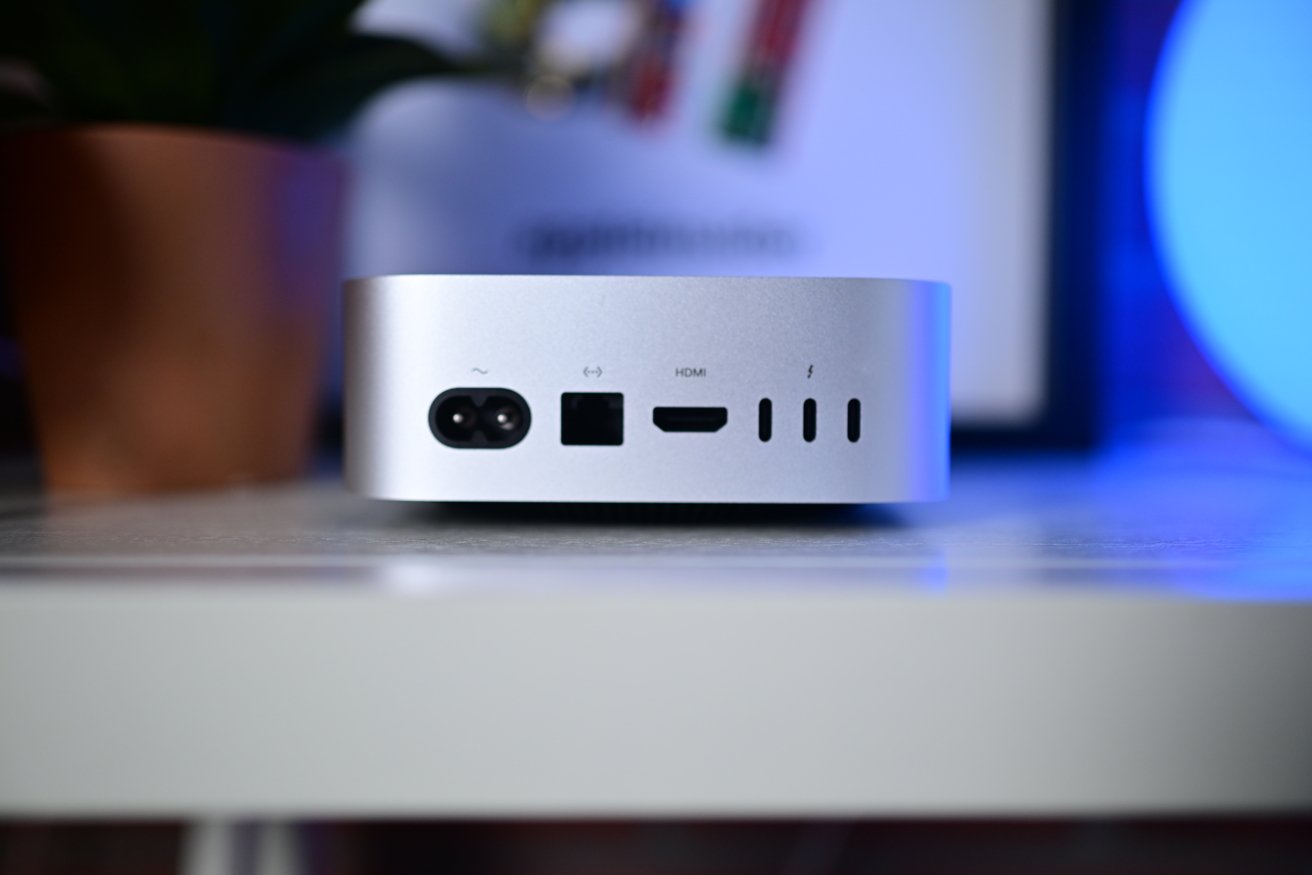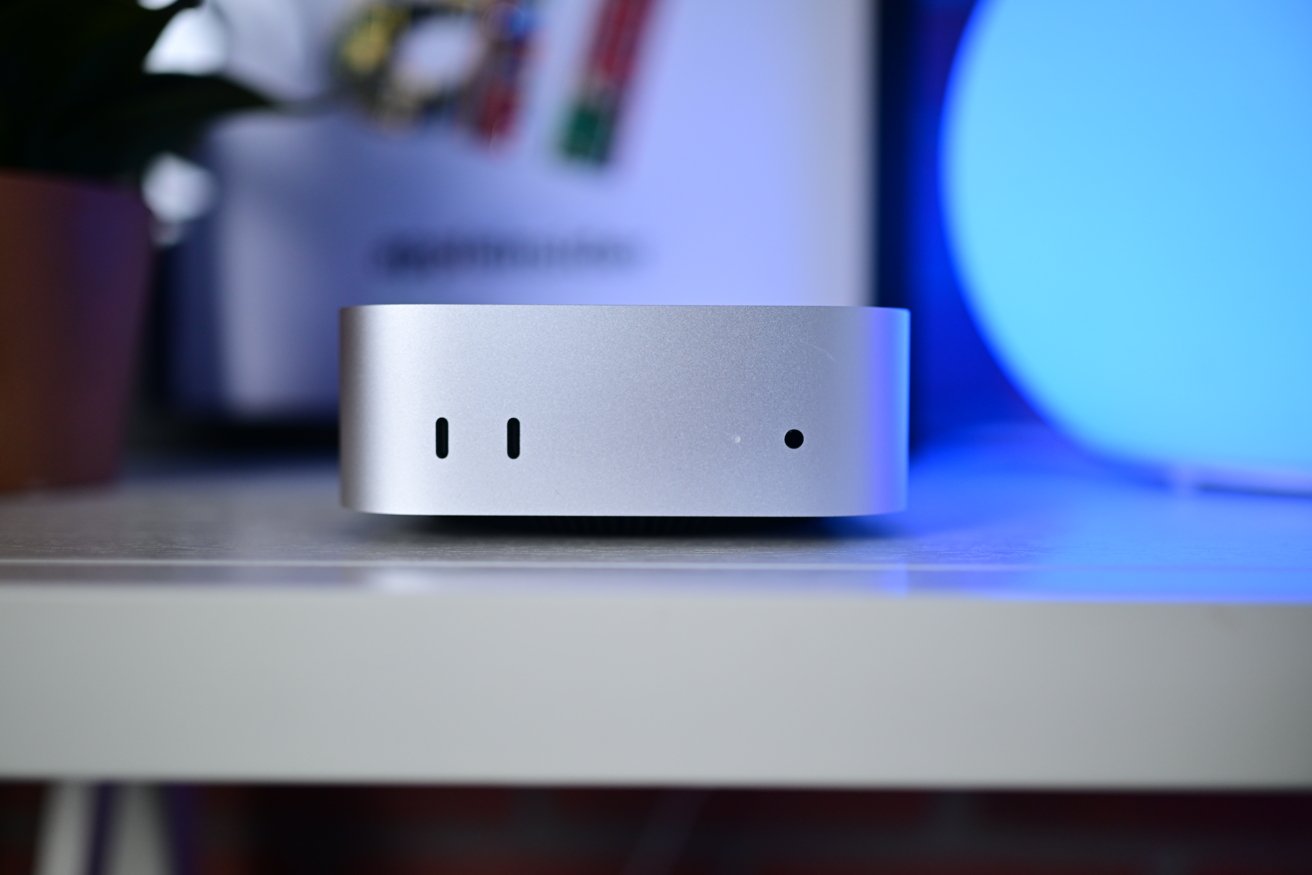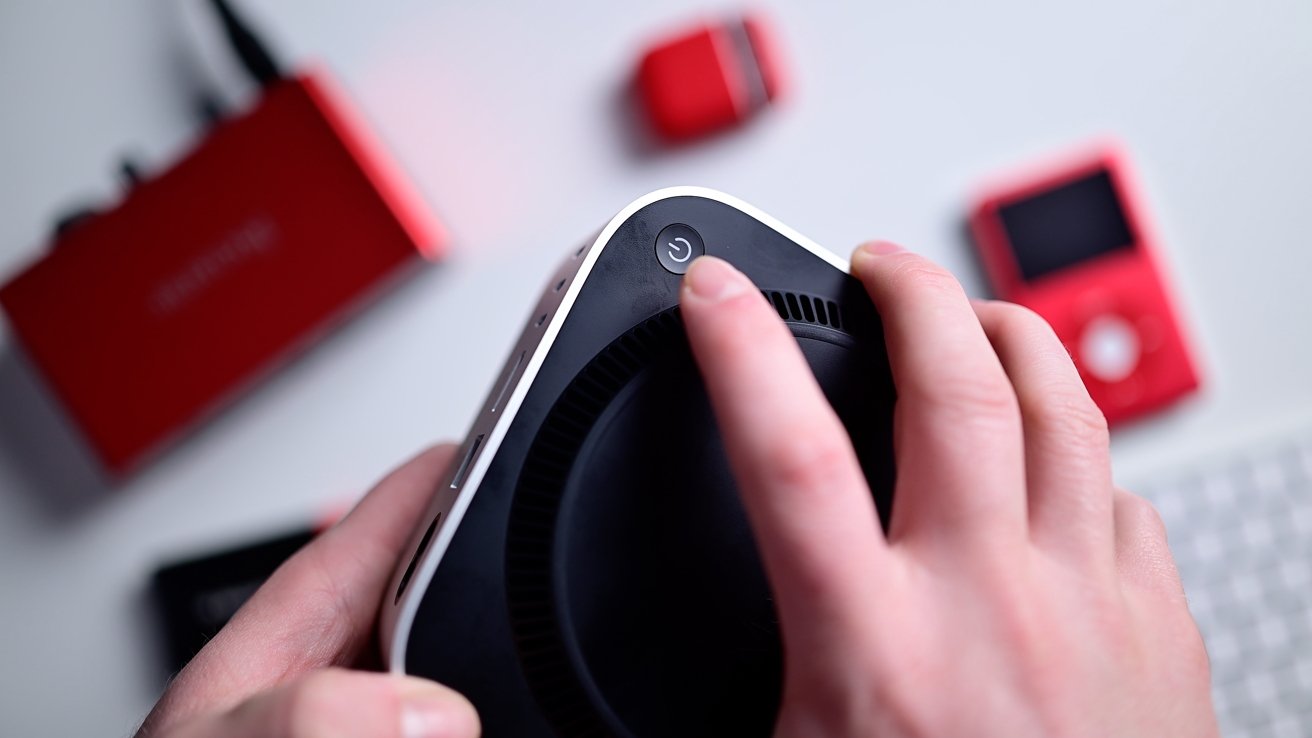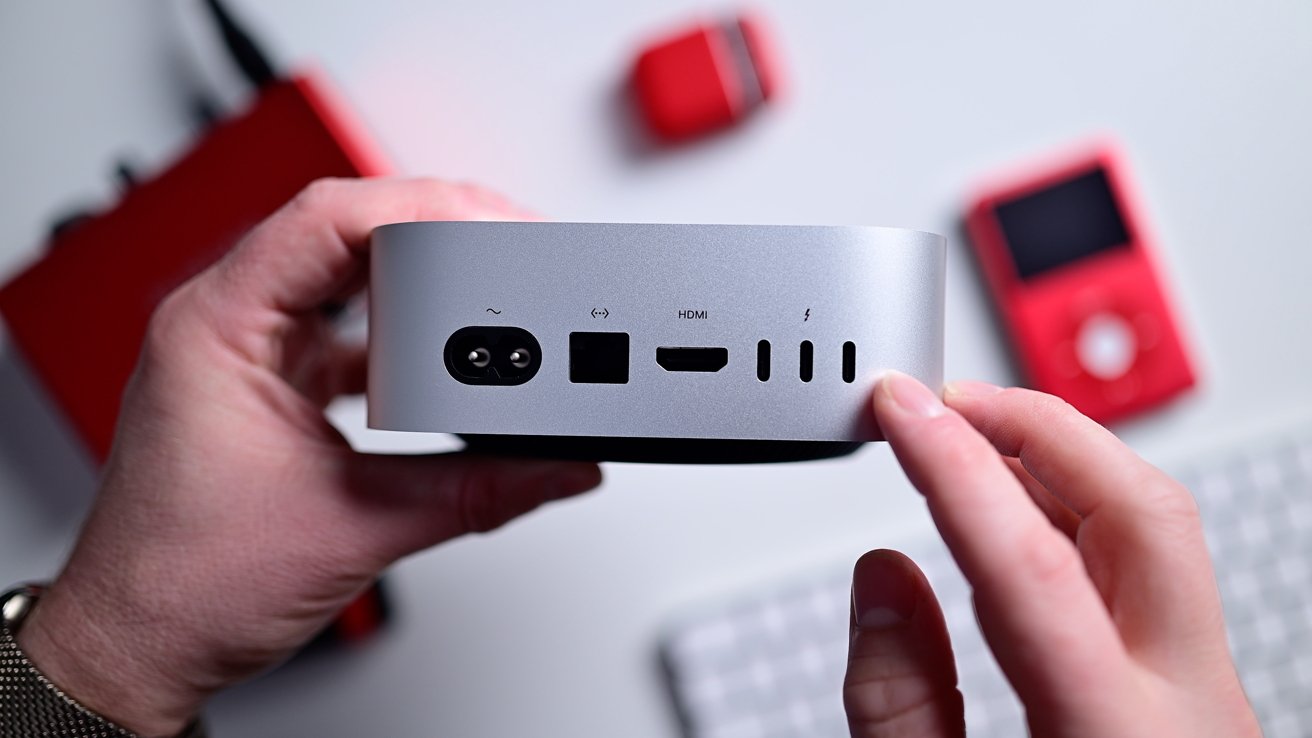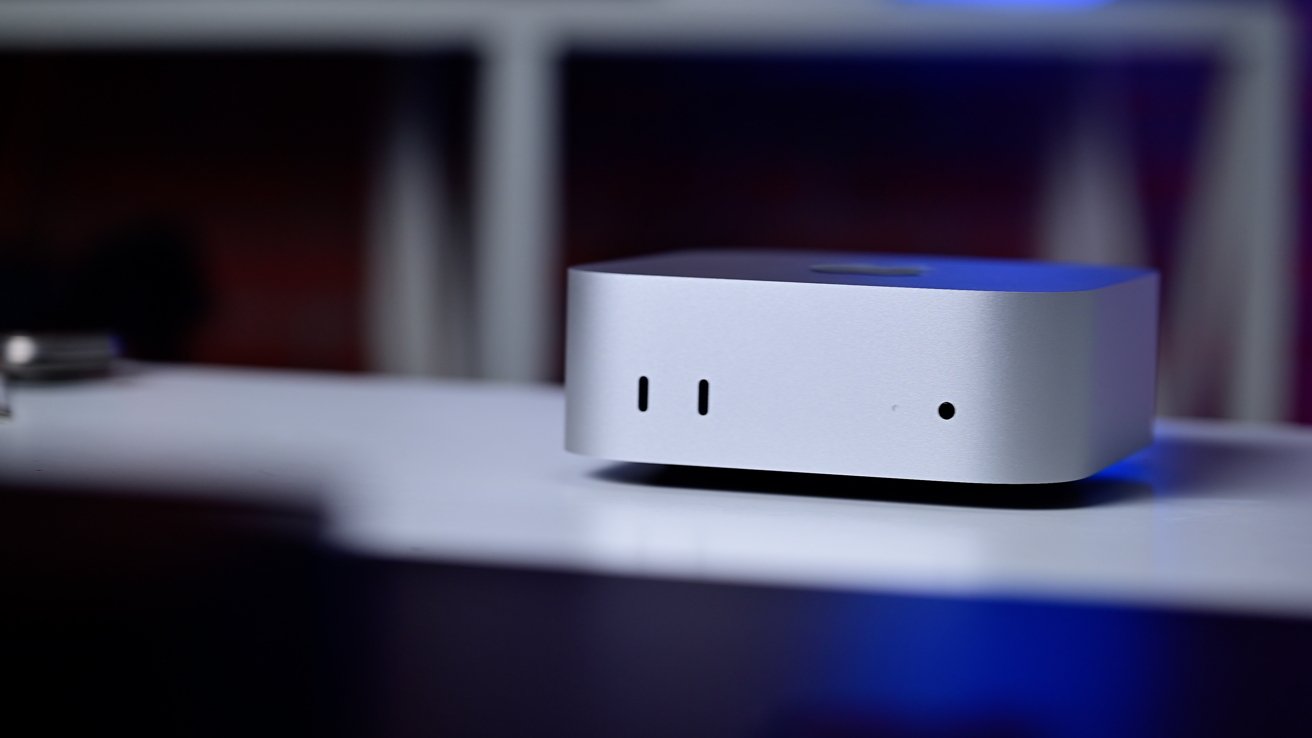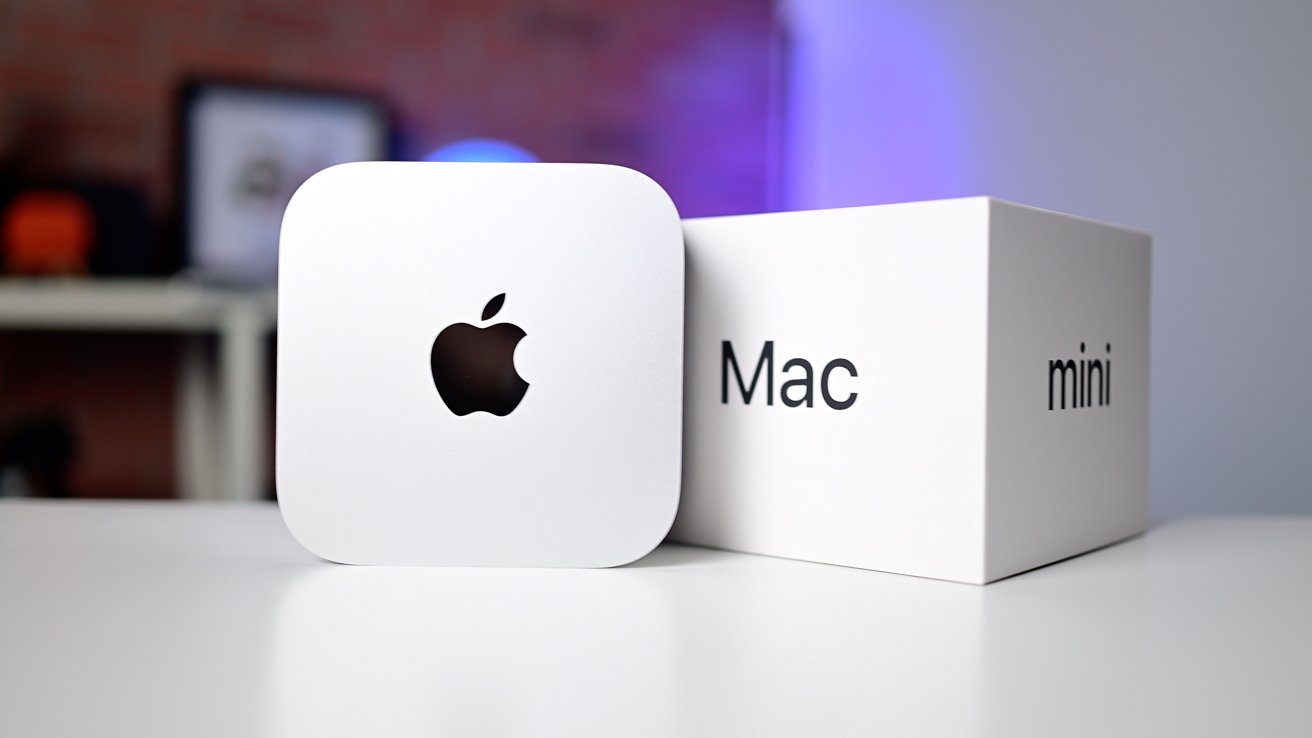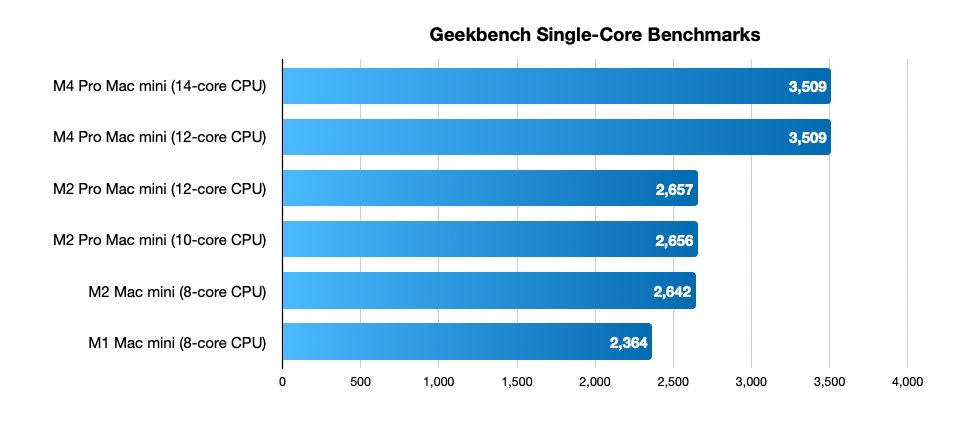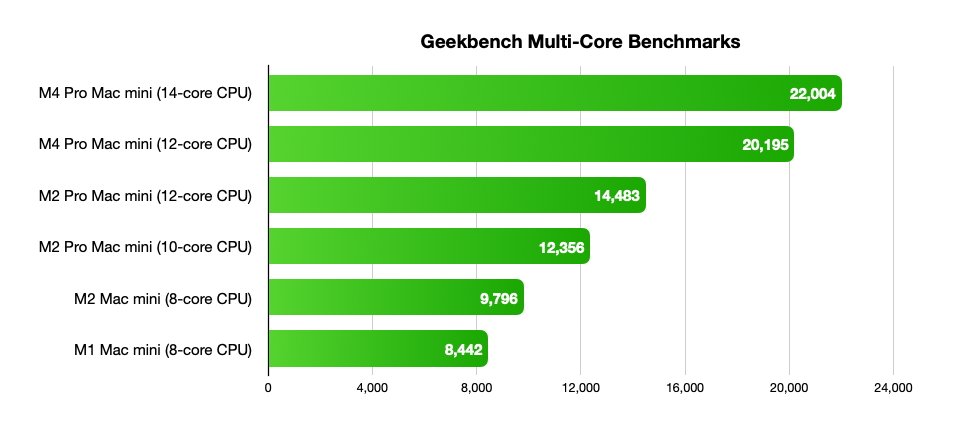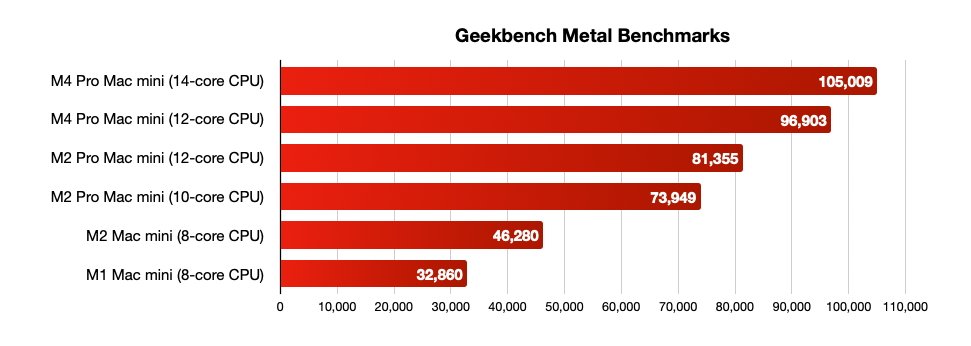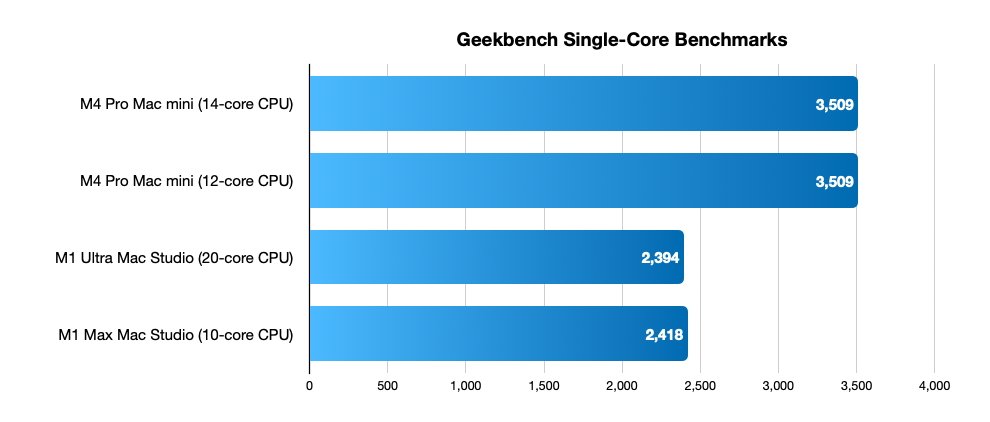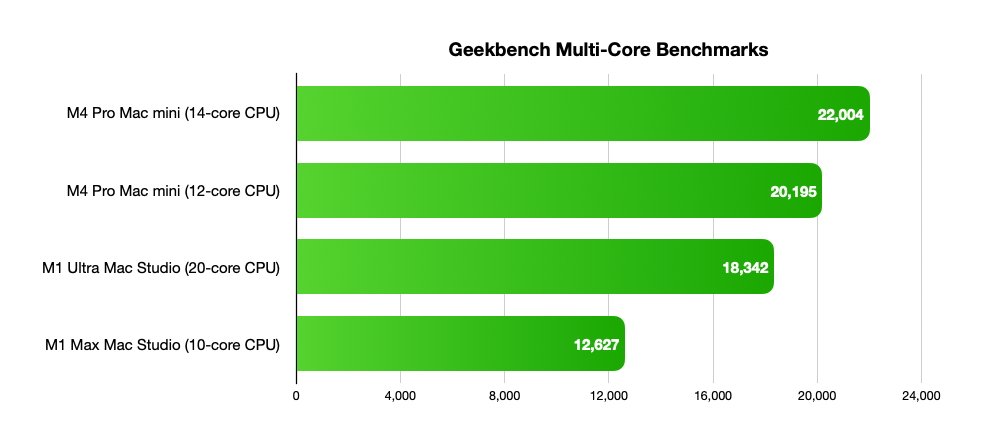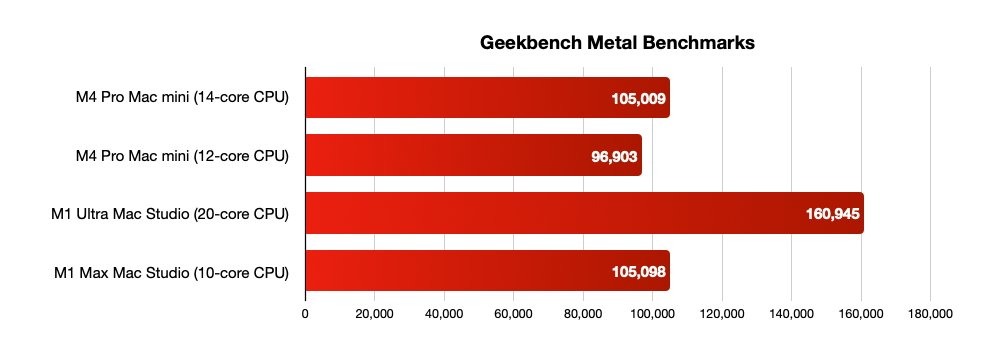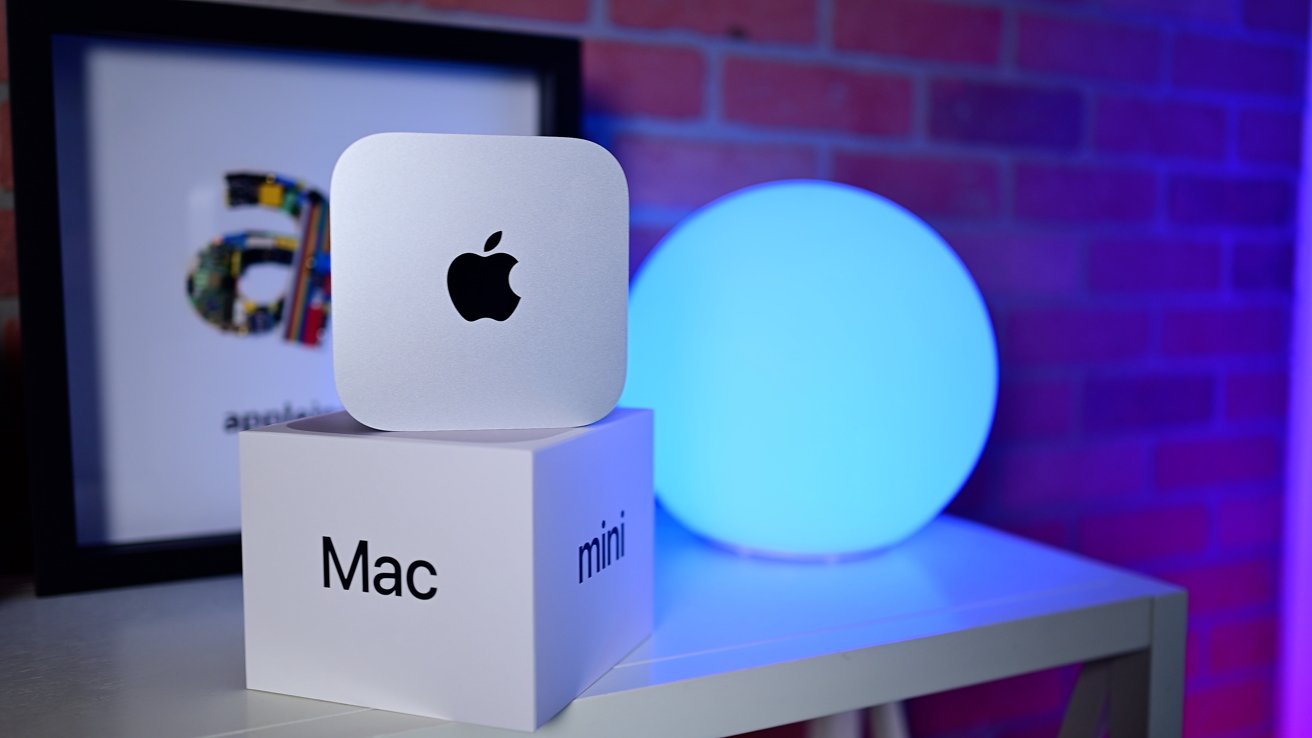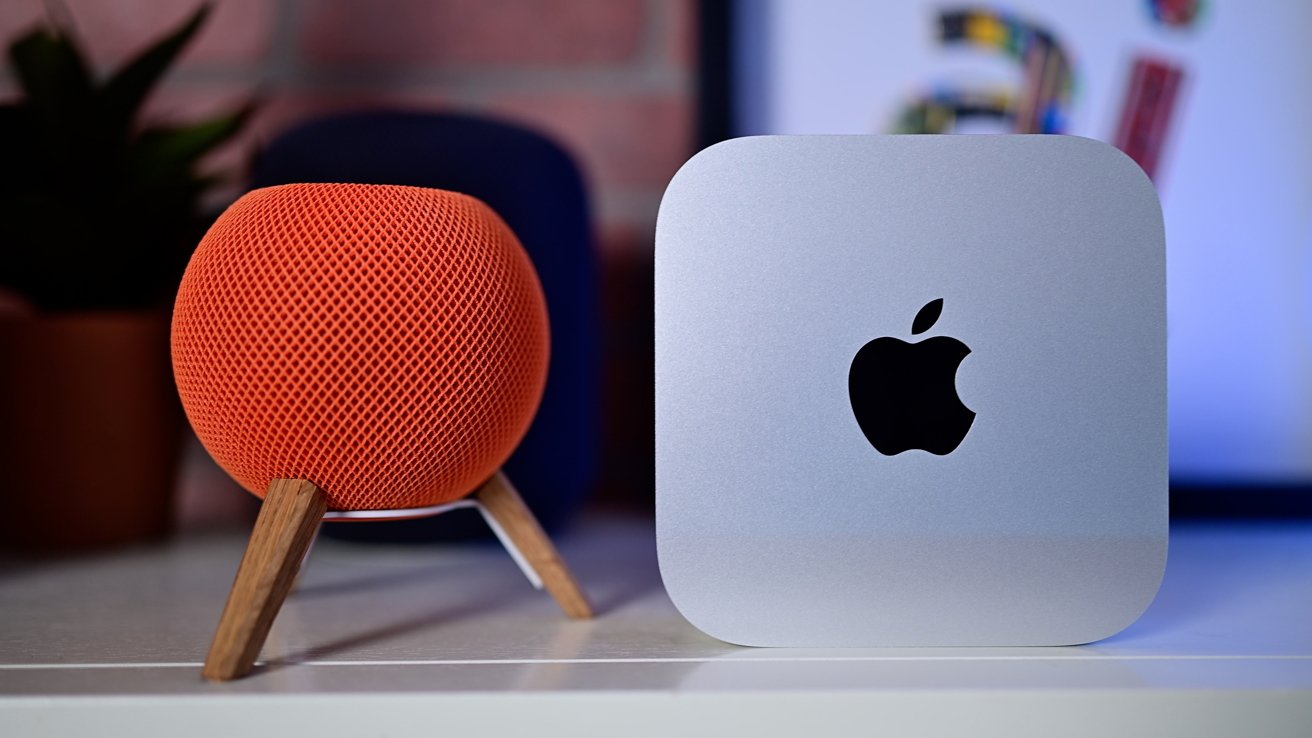The M4 Pro Mac mini is possibly the best deal in computing in late 2025, boasting an impressive amount of power for pros that rivals the Mac Studio and Mac Pro in a tiny package.
When it comes to desktop Mac models, the Mac mini is always considered the entry-level and cheap option, while the Mac Studio and Mac Pro are performance beasts. With the introduction of the M4 Pro Mac mini, Apple has flipped the script — at least for now.
We’ve already looked at the entry-level M4 Mac mini. The M4 Pro Mac mini is a reasonably priced upgrade for people who desire great performance, all in a tiny package.
The Mac Studio and Mac Pro are still stuck on M2. Upgrades to both aren’t expected until halfway through 2025, so the New Mac mini with M4 Pro could be the interim upgrade for a Pro that needs power now and can’t wait for M4 Ultra.
M4 Pro Mac mini review – Design and dimensions
Part of Apple’s overhaul of the Mac mini design, the M4 Pro version has the same external appearance as its M4 counterpart. The 7.75-inch rounded flat square has transformed into a 5-inch rounded square, shrinking its desk presence.
At 2 inches, it’s also a little taller than the 1.41-inch previous Mac mini design. It’s still made of aluminum, though, and has a round base section that handles ventilation.
The recomposition of the Mac mini has also forced a few interesting changes.
For a start, Apple couldn’t fit all of the ports on the back of the Mac mini simply because there wasn’t enough room. As a compromise, some USB-C connections have been brought to the front alongside the headphone jack.
It’s a compromise and a massive departure from the usual Mac mini design philosophy.
The height increase and width decrease also make it resemble a Mac Studio but in miniature. One larger compromise is with power, in that the power button is now located underneath the Mac mini.
This sounds like a bad design idea, as you have to lift it up to access the button. But even so, most users will be putting the Mac mini to sleep, rarely needing the physical power button at all.
How much this matters really depends on how often you shut down your machine. It’s aggravated somewhat by needing to use the Terminal to set startup and wakeup times, but it’s not really a major crisis.
M4 Mac mini review – Specifications, versus M2 Mac mini
| Specifications | M4 Mac mini (2024) | M4 Pro Mac mini (2024) | M2 Mac mini (2023) | M2 Pro Mac mini (2023) |
|---|---|---|---|---|
| Launch starting price | $599 Best M4 Mac mini prices |
$1,399 Check M4 Pro Mac mini prices |
$599 Best M2 Mac mini prices |
$1,299 Best M2 Pro Mac mini prices |
| Dimensions (inches) | 5.0 x 5.0 x 2.0 | 5.0 x 5.0 x 2.0 | 1.41 x 7.75 x 7.75 | 1.41 x 7.75 x 7.75 |
| Weight (pounds) | 1.5 | 1.6 | 2.6 | 2.8 |
| Processor | Apple M4 10-core CPU | Apple M4 Pro 12-core CPU, Apple M4 Pro 14-core CPU |
Apple M2 8-core CPU | Apple M2 Pro 10-core CPU, Apple M2 Pro 12-core CPU |
| Graphics | 10-core GPU | 16-core GPU, 20-core GPU |
10-core GPU | 16-core GPU, 19-core GPU |
| RAM | 16GB, 24GB, 32GB |
24GB, 48GB, 64GB |
8GB, 16GB, 24GB |
16GB, 32GB |
| Networking | 802.11ax Wi-Fi 6E wireless networking IEEE 802.11a/b/g/n/ac compatible, Bluetooth 5.3, Gigabit Ethernet, 10Gig upgradable |
802.11ax Wi-Fi 6E wireless networking IEEE 802.11a/b/g/n/ac compatible, Bluetooth 5.3, Gigabit Ethernet, 10Gig upgradable |
802.11ax Wi-Fi 6E wireless networking IEEE 802.11a/b/g/n/ac compatible, Bluetooth 5.3, Gigabit Ethernet, 10Gig upgradable |
802.11ax Wi-Fi 6E wireless networking IEEE 802.11a/b/g/n/ac compatible, Bluetooth 5.3, Gigabit Ethernet, 10Gig upgradable |
| Storage | 256GB, 512GB, 1TB, 2TB |
512GB, 1TB, 2TB, 4TB, 8TB |
256GB, 512GB, 1TB, 2TB |
512GB, 1TB, 2TB, 4TB, 8TB |
| Display Support | Maximum of 3: Two 6K 60Hz over Thunderbolt and one 5K 60Hz over HDMI, or one 5K 60Hz over Thunderbolt and one 8K 60Hz or 4K 240Hz over HDMI |
Maximum of 3: Three 6K 60Hz over Thunderbolt or HDMI, or one 6K 60Hz over Thunderbolt and one 8K 60Hz or 4K 240Hz over Thunderbolt or HDMI |
Maximum of 2: One 6K 60Hz over Thunderbolt and one 5K 60Hz over Thunderbolt or 4K 60Hz over HDMI |
Maximum of 3: Two 6K 60Hz over Thunderbolt and one 4K over HDMI. Up to 8K resolution or 240Hz possible over HDMI |
| Ports | HDMI, Three Thunderbolt 4, Two USB 3 Type-C (front) Gigabit Ethernet, 3.5mm headphone (front) |
HDMI, Three Thunderbolt 5, Two USB 3 Type-C (front) Gigabit Ethernet, 3.5mm headphone (front) |
HDMI, Two Thunderbolt 4, Two USB-A, Gigabit Ethernet, 3.5mm headphone |
HDMI, Four Thunderbolt 4, Two USB-A, Gigabit Ethernet, 3.5mm headphone |
M4 Pro Mac mini review – Connectivity and Thunderbolt 5
As for the wireless side, there’s Wi-Fi 6E and Bluetooth 5.3. These are fairly standard, but also connections that you will only really benefit from if you have the infrastructure or supporting peripherals that use it.
There’s no Wi-Fi 7 here as there is in the iPhone. We’re not sure why this was decided, especially on the higher-end Mac mini, but it’s not a huge crisis at the moment.
The position of ports isn’t the only change to the connectivity in the M4 Pro Mac mini. The selection has also changed to match the new design.
The back of the M4 Mac mini has an HDMI connection, a trio of Thunderbolt ports, and Gigabit Ethernet, which you can pay to upgrade to a 10-gig version.
Around the front are a pair of USB-C ports, offering USB 3 support and 10Gb/s speeds. There’s also the headphone jack, which supports high-impedance headphones, a now-standard feature change.
The pair of USB-A ports from the old Mac mini have been consigned to the trash can of history. If you really need them, your best bet is to take advantage of a Thunderbolt dock.
Thunderbolt 5 will be the star of the show — eventually
Speaking of Thunderbolt, the M4 Pro model improves here over the M4 Mac mini. Rather than Thunderbolt 4, the trio of ports in the M4 Pro Mac mini use Thunderbolt 5.
There are several advantages to using Thunderbolt 5 over Thunderbolt 4, with the chief one being bandwidth. While Thunderbolt 4 maxes out at 40Gb/s, Thunderbolt 5 doubles it to 80Gb/s for bi-directional connections.
For asynchronous uses, it goes even higher, to 120Gb/s.
Then, there are the expanded video capabilities of the technology. Thunderbolt 4 manages one 8K screen or two 4K 60Hz displays, which is decent in its own right.
But Thunderbolt 5 can handle multiple 8K screens or three 4K screens at up to 144Hz. If it’s one 4K screen, the Thunderbolt 5 standard allows it to go up to 540Hz.
Thunderbolt 5 can also handle higher power limits. Thunderbolt 4 allows up to 100W of power delivery, while Thunderbolt 5 can do up to 240W, with 140W mandatory support.
This is great future-proofing, but it’s extremely hard to test. We’ll be looking at this more in the future, as Thunderbolt 5 enclosures, docks, and other accessories are more available.
M4 Pro Mac mini review – M4 and other internals
The big attraction here is the M4 Pro chip, marking a two-generation chip upgrade from the M2 Pro in the previous model.
This time, the M4 Pro packs more cores than the M2 Pro in both variants. Add in Apple’s claim that it uses the “world’s fastest CPU core,” and things start to get spicy.
The M4 Pro base version is a 12-core CPU with eight performance cores and four efficiency cores. That’s paired with a 16-core GPU and the 16-core Neural Engine primed for Apple Intelligence and the Media Engine for video encoding and decoding.
The upper-tier version has a 14-core CPU, with ten performance cores and four efficiency cores. The GPU is similarly bumped up, supplied with 20 cores.
Memory is also improved in multiple ways. There’s the capacity of unified memory for starters, with the base being 24GB, rising to 48GB and 64GB, double the last model’s maximum.
Memory bandwidth is also up, from 200GB/s in the M2 Pro to 273GB/s in the M4 Pro. Even this increase helps push the M4 Pro further in terms of performance.
M4 Pro Mac mini review – Performance
Apple trumpeted the speed of the M4 during its announcement. They gave vague promises of two times that, three times this, but they never really benchmark things.
When compared to the previous models of Mac mini in Geekbench, it’s clear that the M4 Pro is considerably more powerful. With a single-core score of 3,509 in testing, almost 900 points clear of the M2 Pro version.
For multicore, there’s still an observable difference in performance for the M4 Pro models. This is partly due to the increased core counts, but even the 12-core M4 Pro at 20,195 dwarfs the 12-core M2 Pro version at 14,483.
This continues on with the Metal benchmark, as the top-spec version of the M4 Pro finally breaks the 100,000 score barrier.
In the single-core test, the M4 Pro again blasts past the M1 Mac Studio models at 3,500 versus 2,400. That is a considerable step up in the speed of everyday tasks.
For the non-Pro, single core is still the metric that matters.
Multicore testing is much closer, partly because the M1 Ultra has a 20-core CPU versus the 14-core and 12-core M4 Pro. However, despite the sheer number of cores, the M1 Ultra still can’t keep up with the M4 Pro, even the 12-core version.
When it comes to Metal, the GPUs in the M4 Pro and M1 Max models are comparable. The outlier is the M1 Ultra, simply because it has so many cores at its disposal. It’s hard to keep up on GPU improvements alone against a chip that offers that sheer quantity of GPU cores.
So, maybe, hang on to that M1 Ultra Mac Studio for a little while longer, if you need the CPU grunt.
M4 Pro Mac mini review – SSD speeds
Our review M4 Pro unit has a 512GB SSD. As promised, it has a faster SSD than the M4 mini has.
Our BlackMagic Disk speed test for read looked at data at about 6.3 gigabytes per second. It consistently wrote at 5.2 gigabytes per second.
This is in contrast to our M4 Mac mini review, where we saw symmetrical read and write speeds about 3 gigabytes per second.
As I just about always have, I recommend external local storage, or network attached storage instead of paying Apple’s exorbitant SSD prices. External storage is almost always a better and hugely more cost-effective option for desktops. On the M4 Pro Mac mini, though, it’s not equivalent speed across Thunderbolt 4 enclosures.
Use your upgrade money for extra RAM, maybe. Apple’s RAM prices are steep too. In a desktop form factor, that’s money better spent than internal storage.
Street prices for 1TB external high-speed Thunderbolt or USB4 SSDs are about $160, if you shop right, or build your own. Or, 2TB drives can be had for about $250. These will deliver about 2.7 gigabytes per second read and write, which is more than enough speed for just about any task.
We’ll be looking at Thunderbolt 5 enclosures when they’re more widely available.
M4 Pro Mac mini review – The tiny machine to beat in December 2025
Time marches on, and so does computing power. While Moore’s law is pretty dead, annual increments in Apple Silicon have brought fairly impressive results to even the low-end, like the Mac mini.
When you’re looking at the Mac mini M4, it’s worth considering what your jobs look like. If you’re doing mostly business casual work, like Office, then there won’t be a huge difference in performance from the M4 to M4 Pro models.
However, renders, video editing, and the like, will be enhanced by the boost in multicore and GPU speeds from the $599 model to the $1200+ version.
I’ve liked the Mac mini from the start. There’s been at least one in the house since the G4 version shipped, and as I count right at the moment, there are five. One is a beefed-up G4 model for when I get nostalgic for OS9, and the other is the core of my home network, serving content and Time Machine backups for a host of machines. Now, there’s this one.
Now that this review has concluded, the cascading upgrades begin. The M4 will be overkill for the home server, that M2 mini will replace a M1 mini in use as a general computing appliance, and the M1 mini will get handed down to a family member for general use.
What it won’t do is replace my M1 Ultra Mac Studio — today. It probably shouldn’t for the few that own one. The next one probably will, though, and as it stands today, just about everything else in Apple’s lineup is slower than the M4 Pro Mac mini.
As we said in the M4 mini review, if you are still on Intel Mac hardware, it’s probably time to migrate, regardless of your power needs.
M4 Pro Mac mini review – Pros
- About M2 Mac Studio Power, for half the price
- More USB-C and more USB overall than the previous design
- Thunderbolt 5 will be amazingly fast, but…
M4 Pro Mac mini review – Cons
- Thunderbolt 5 accessories aren’t really shipping yet, and will take well into 2025 to proliferate
- Exorbitant SSD and RAM upgrade pricing
Rating: 5 out of 5
Where to buy Apple’s M4 Pro Mac mini at a discount
Every 2024 Mac mini configuration is on sale in our M4 Mac mini Price Guide, with prices starting at $499 at press time.
Exclusive Deals Through AppleInsider
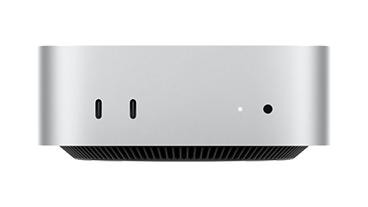
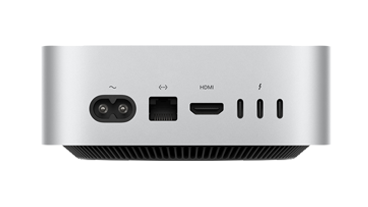
Save on the retail M4 Pro model with 24GB unified memory and 512GB storage at Amazon with an on-page coupon, or opt for a configure-to-order (CTO) model at up to $200 off with promo code APINSIDER at Apple Authorized Reseller Adorama.


